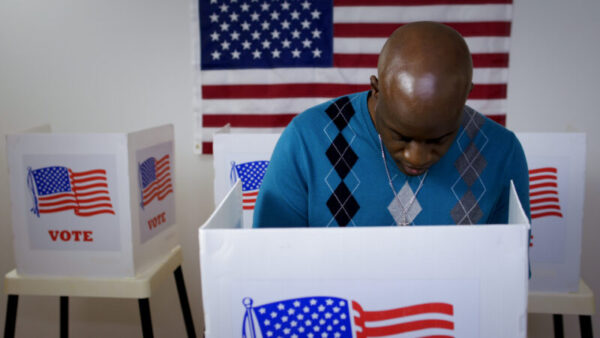ACLU Study Finds Kentuckians are Being Denied the Right to Vote Because of Faulty Information
FOR IMMEDIATE RELEASE
CONTACT: media@aclu.org
FRANKFORT, KY -- The American Civil Liberties Union of Kentucky today released a study showing that alarming numbers of county and state officials provide inaccurate information to people with criminal convictions seeking restoration of their voting rights.
The ACLU said the results of the study, which was developed in conjunction with the Right to Vote Campaign, show a clear need to change the Kentucky Constitution to provide automatic restoration of rights.
"This study provides further evidence that Kentucky's system is seriously flawed and that Kentucky legislators need to move swiftly to ensure that eligible voters are no longer denied their rights," said Maria Emilia Ramirez, a program associate with the ACLU of Kentucky.
The study found that while probation and parole officers were slightly more likely than county clerks to provide accurate information, employees of both offices couldn’t answer simple questions regarding restoration of voting rights for people with criminal convictions.
Among the study’s findings:
· 70 percent of county clerks and nearly 12 percent of probation and parole officers wrongly believed that people who have been convicted of misdemeanors could not vote, or they were unsure whether they could vote;
· Nearly 48 percent of probation and parole officers did not know if individuals with federal felony convictions could register to vote;
· 36 percent of county clerks did not know if people on probation or parole were eligible to register to vote;
· Nearly 25 percent of probation and parole officers did not know whether former felons had to re-register when they got their right to vote back; and
· 25 percent of county clerks did not know if individuals with federal felony convictions could register to vote.
The ACLU also raised concerns over comments made by officials during the course of the survey, including one clerk who said that in her county, "we often know who is convicted of a felony and the poll workers may challenge their vote."
The ACLU said Kentucky has the dubious distinction of being one of only three states in the nation that permanently disfranchise all felony offenders. Kentucky's offenders can only get their voting rights restored through an executive pardon from the governor. In 2004, Governor Ernie Fletcher complicated this already onerous process by requiring applicants to submit a written statement explaining why they want to regain their voting rights and to provide three character references.
A growing number of individuals and organizations throughout the state are urging legislators to approve a constitutional amendment in 2006 that would provide automatic restoration of voting rights to the state's approximately 109,000 disfranchised ex-offenders, a number that includes several military veterans.
Since 1997, 12 states have made it possible for more people with felony convictions to cast a ballot. Even the two other states with permanent disfranchisement policies have begun to take steps to improve their restoration processes.
"This survey confirms that Kentucky needs to get in step with the rest of the nation and recognize that voting is a fundamental democratic right that should not be denied to anyone, certainly not because of official ineptitude," said Laleh Ispahani, Felon Enfranchisement Fellow with the national ACLU. “The current trend among states is toward extension of voting rights. Kentucky should follow suit.”
The ACLU of Kentucky is also urging state legislators to require county clerks and probation and parole officials to be better trained regarding how and when people who have been convicted of misdemeanors or felonies are eligible to vote. The ACLU said such legislation could help curb the spreading of misinformation to eligible voters.


